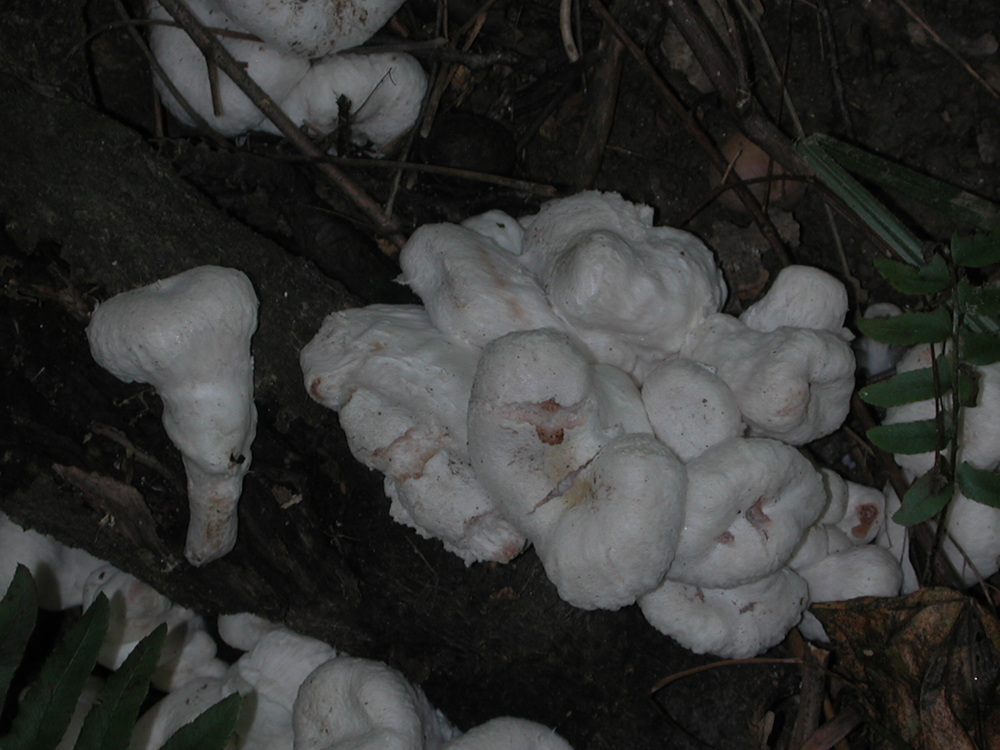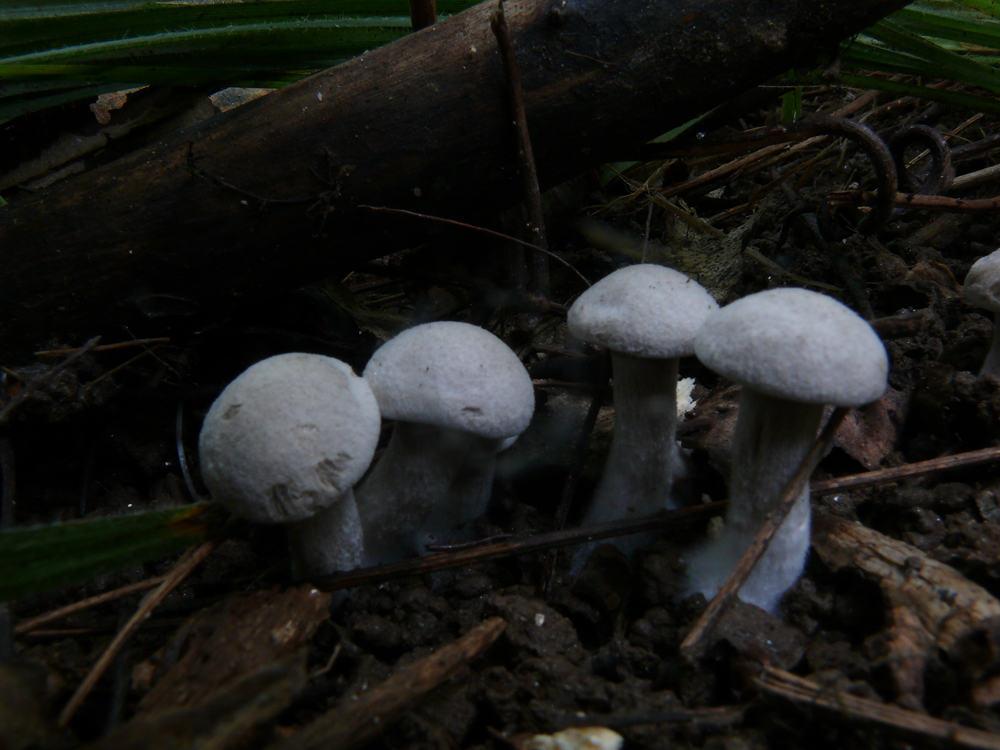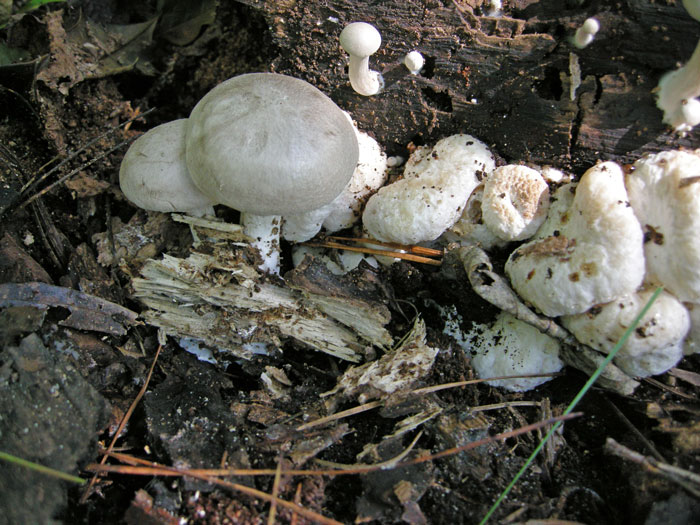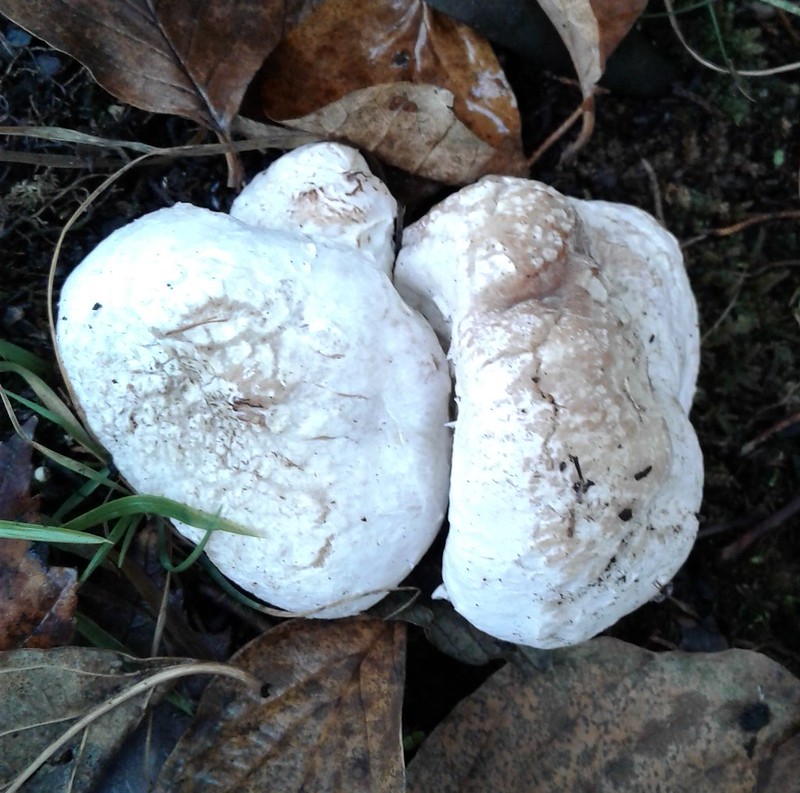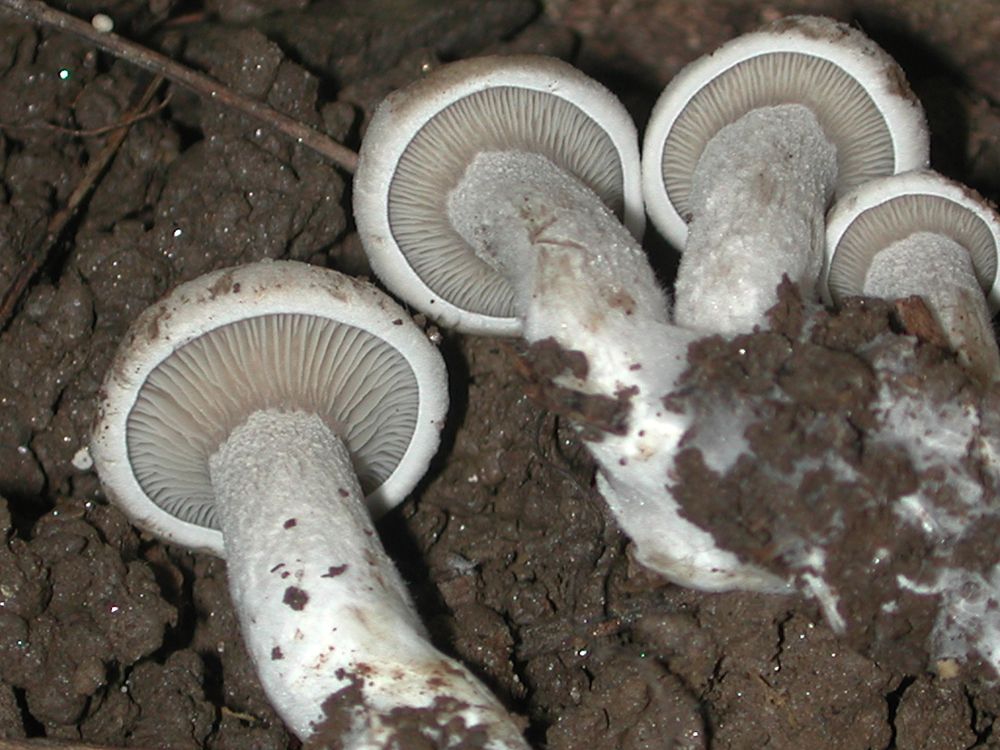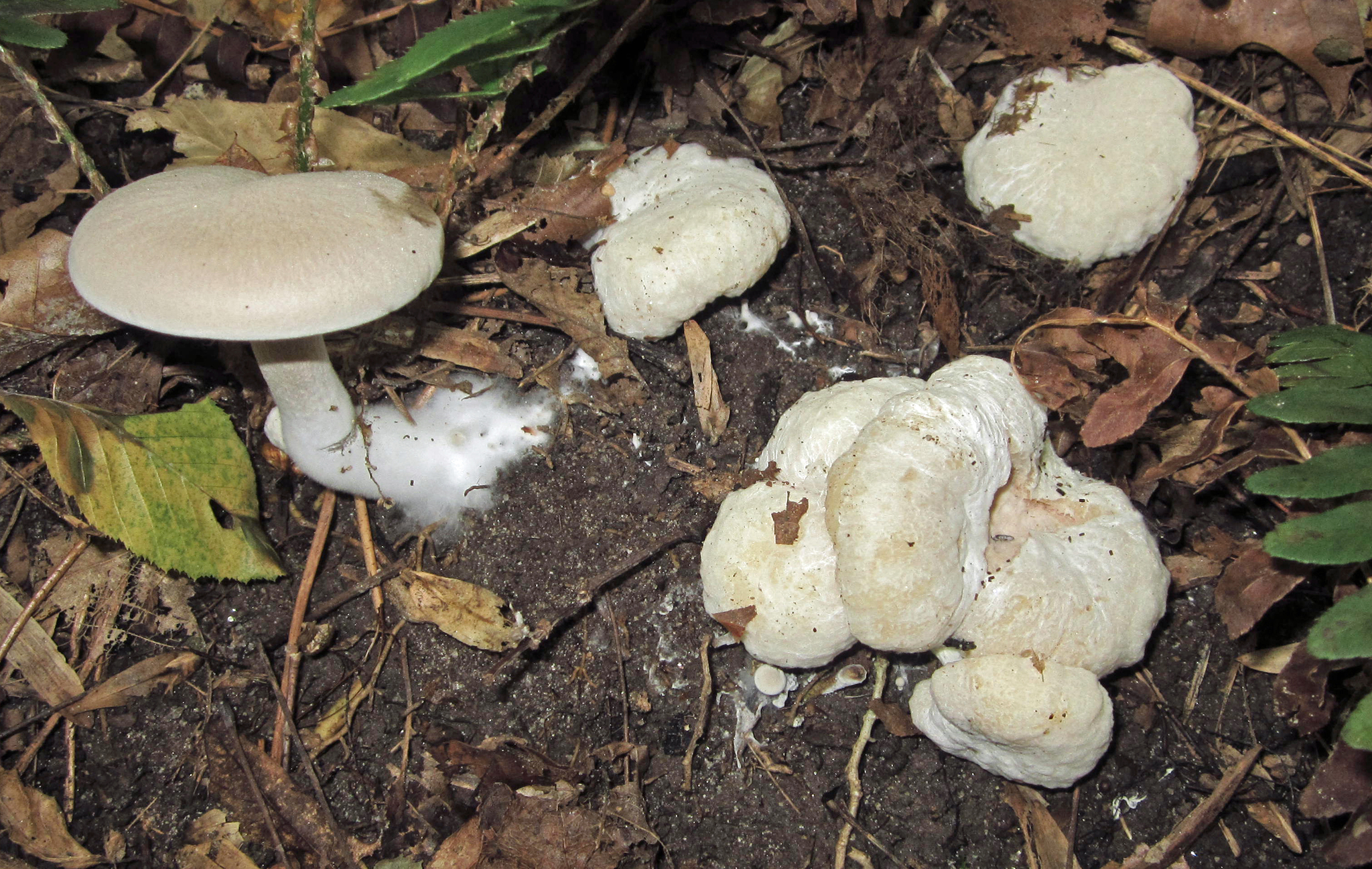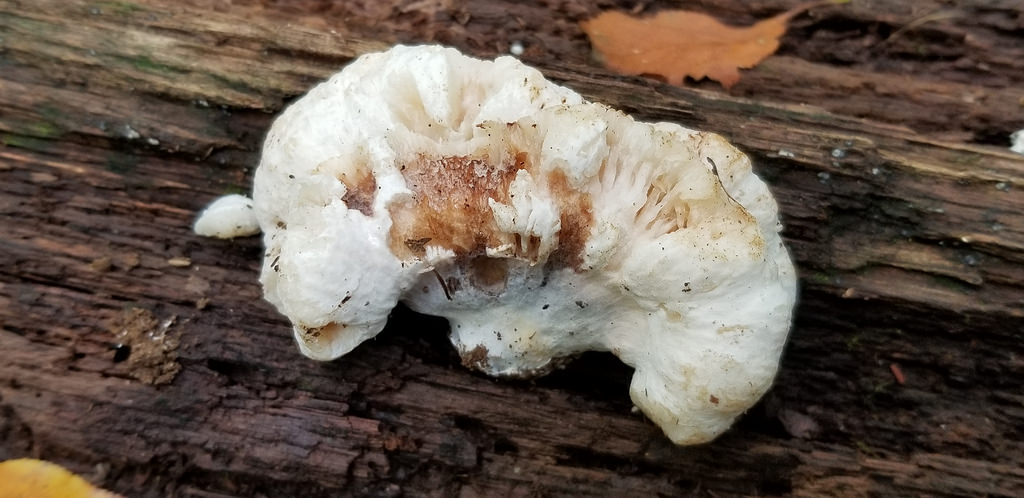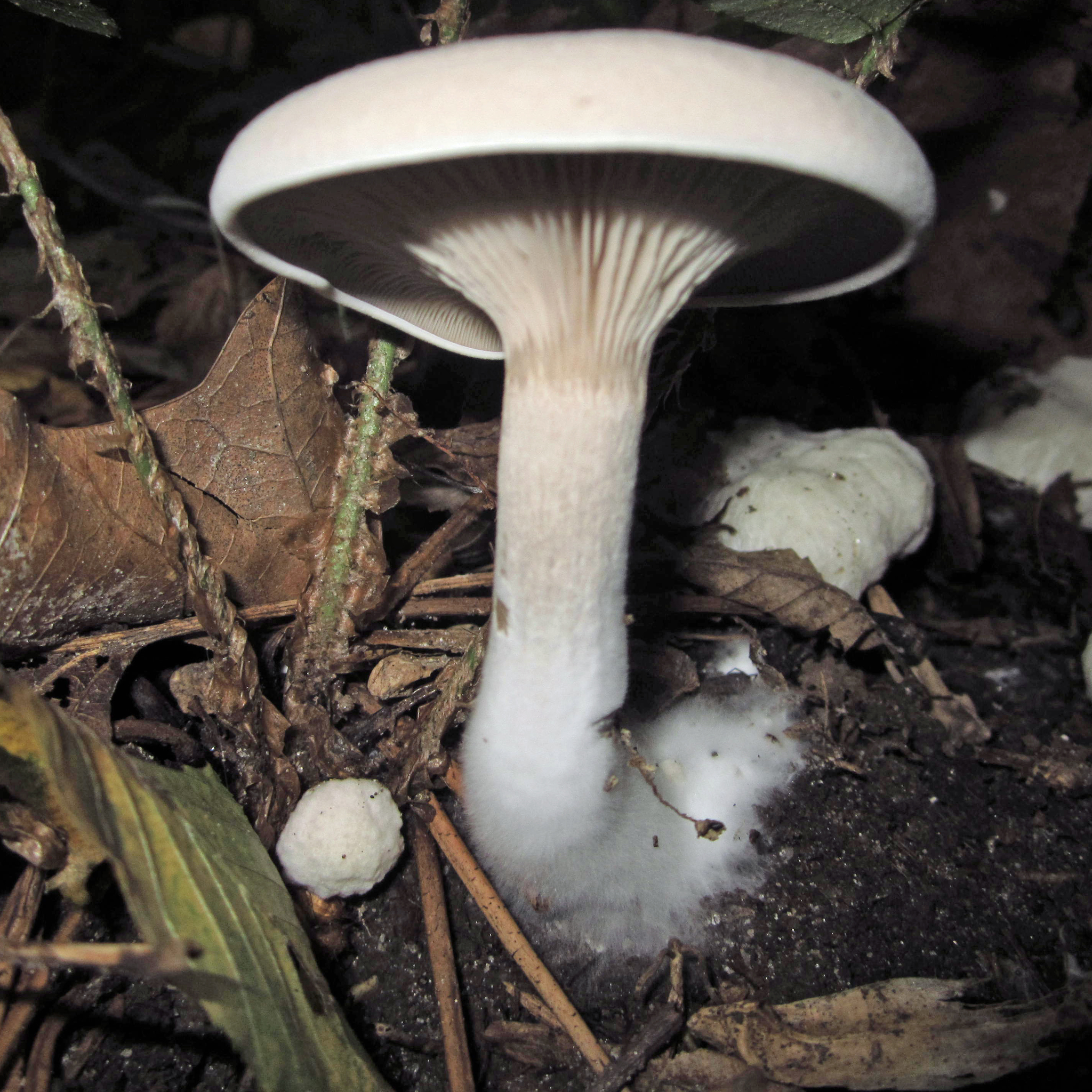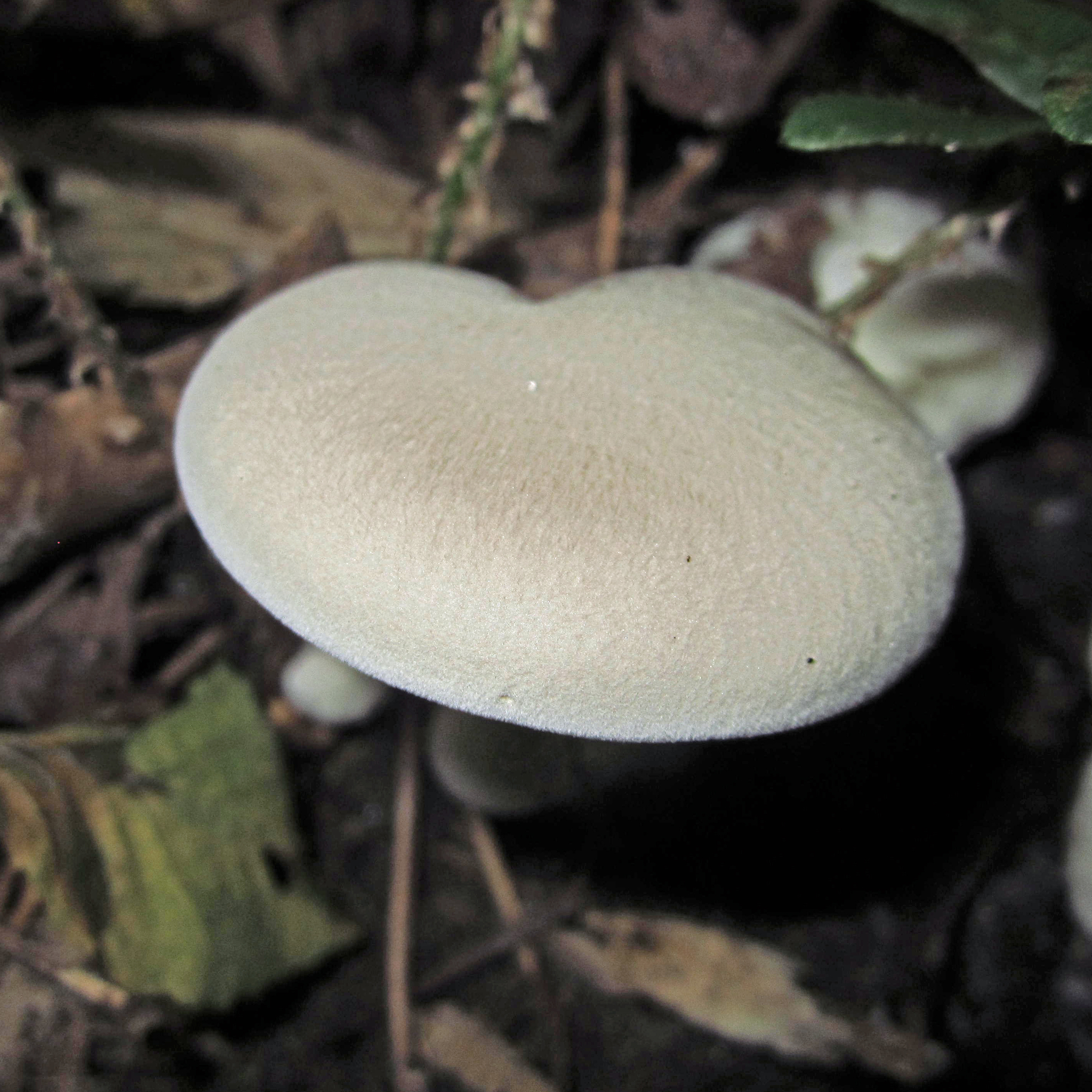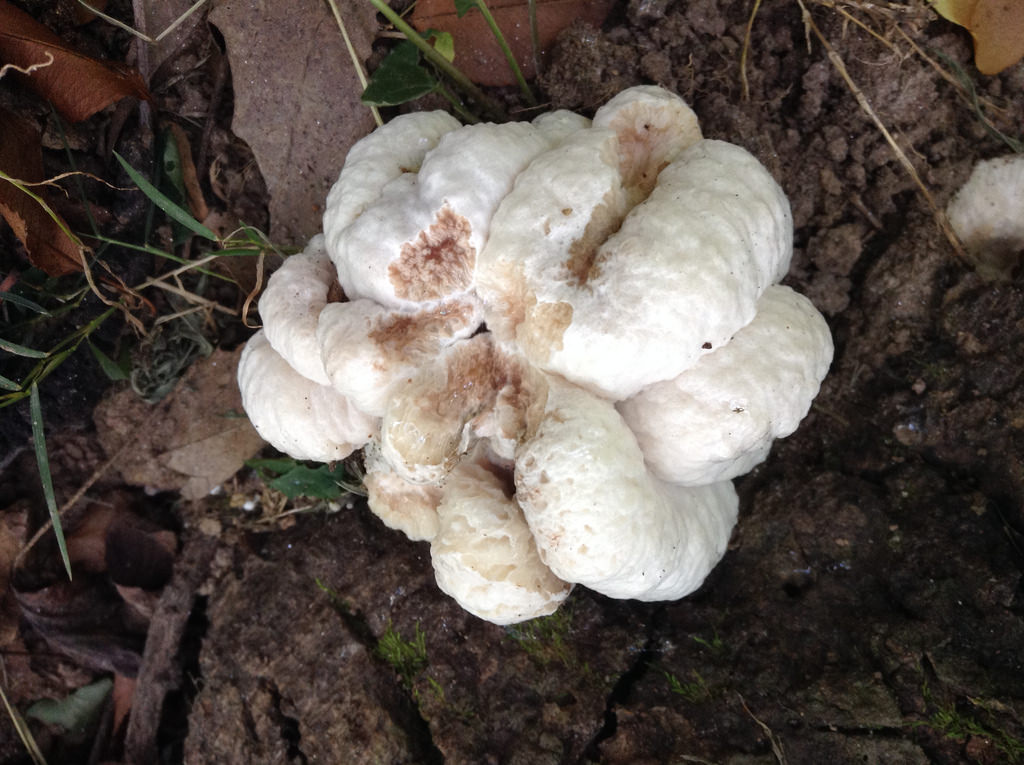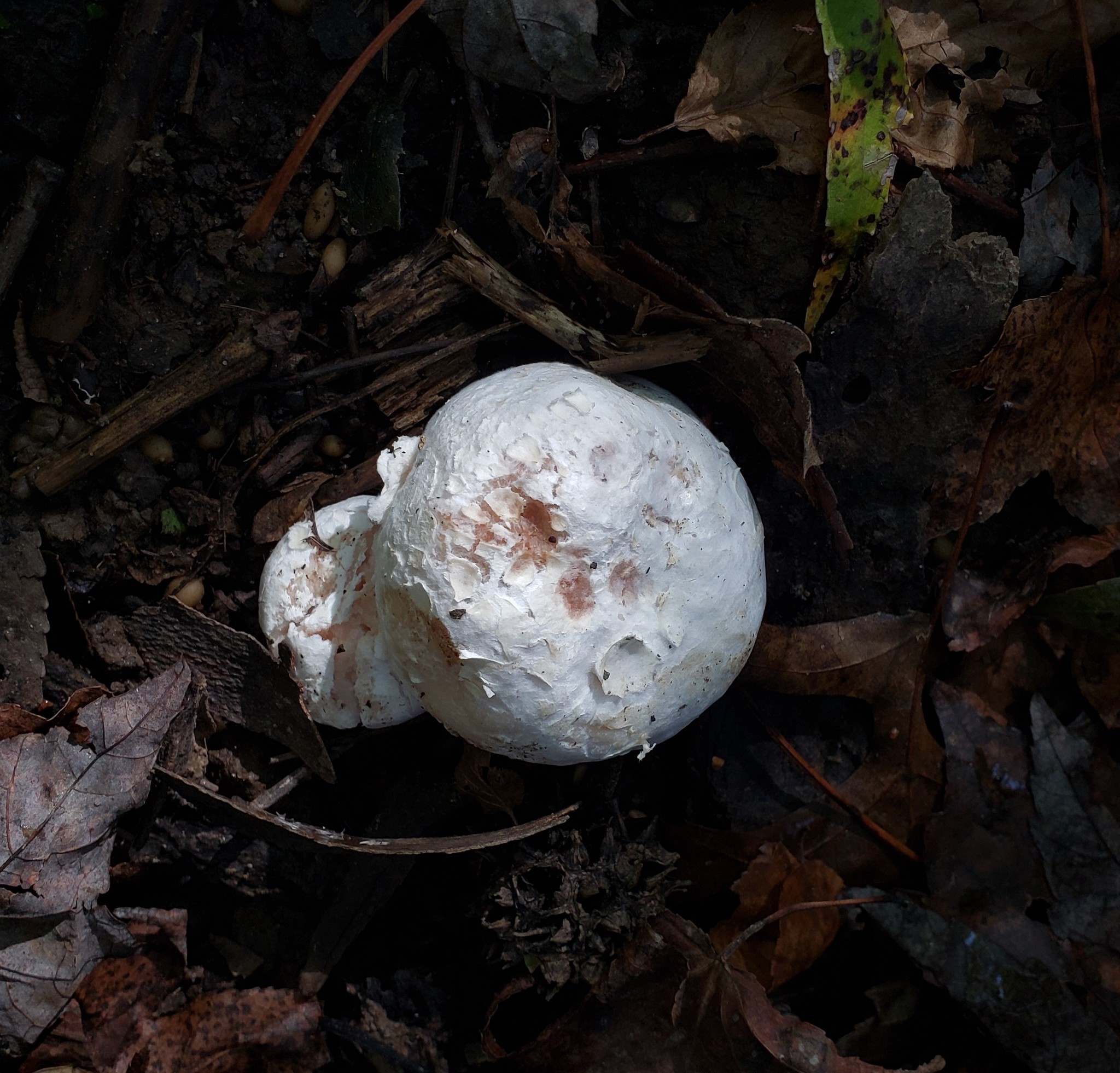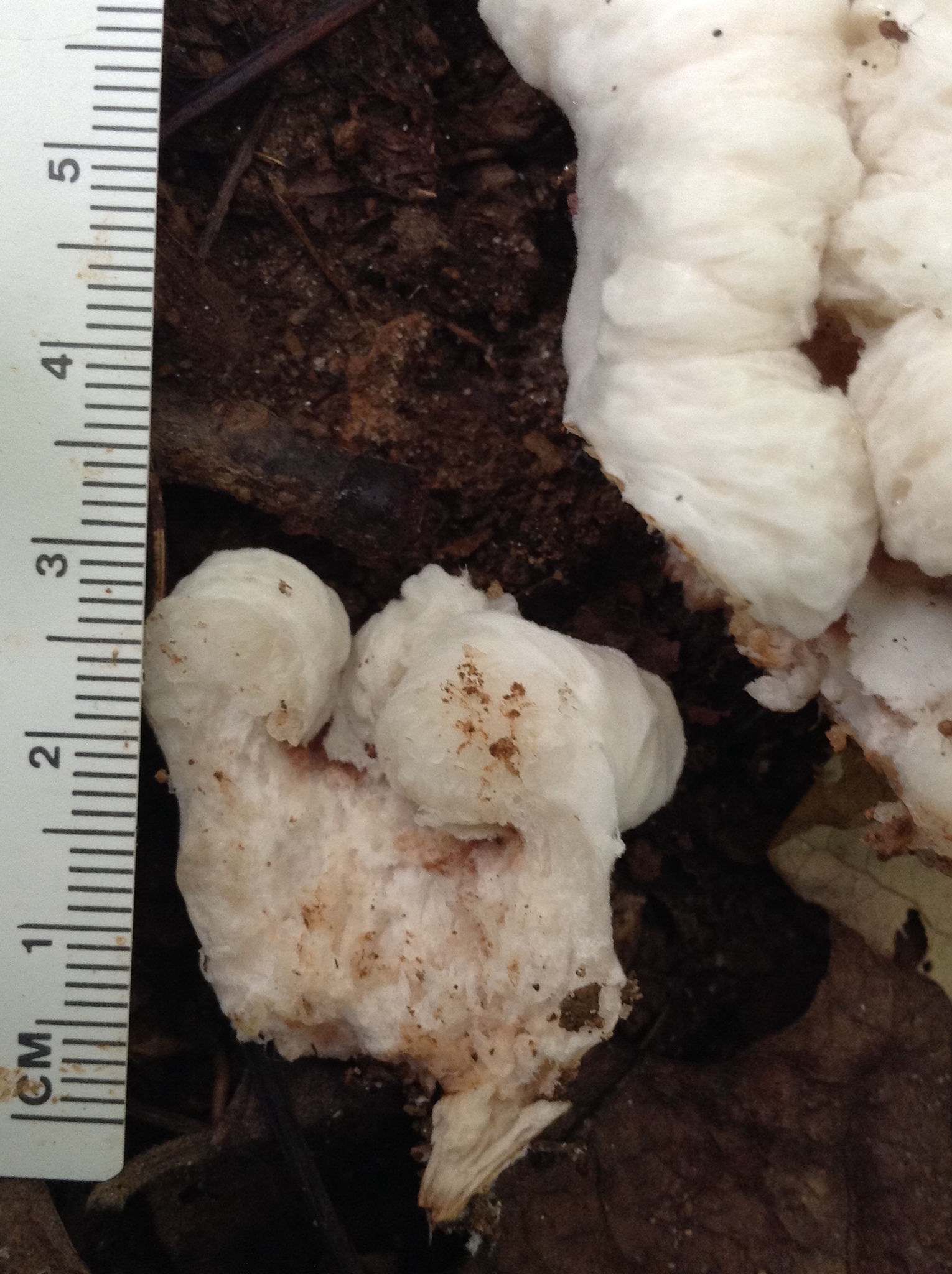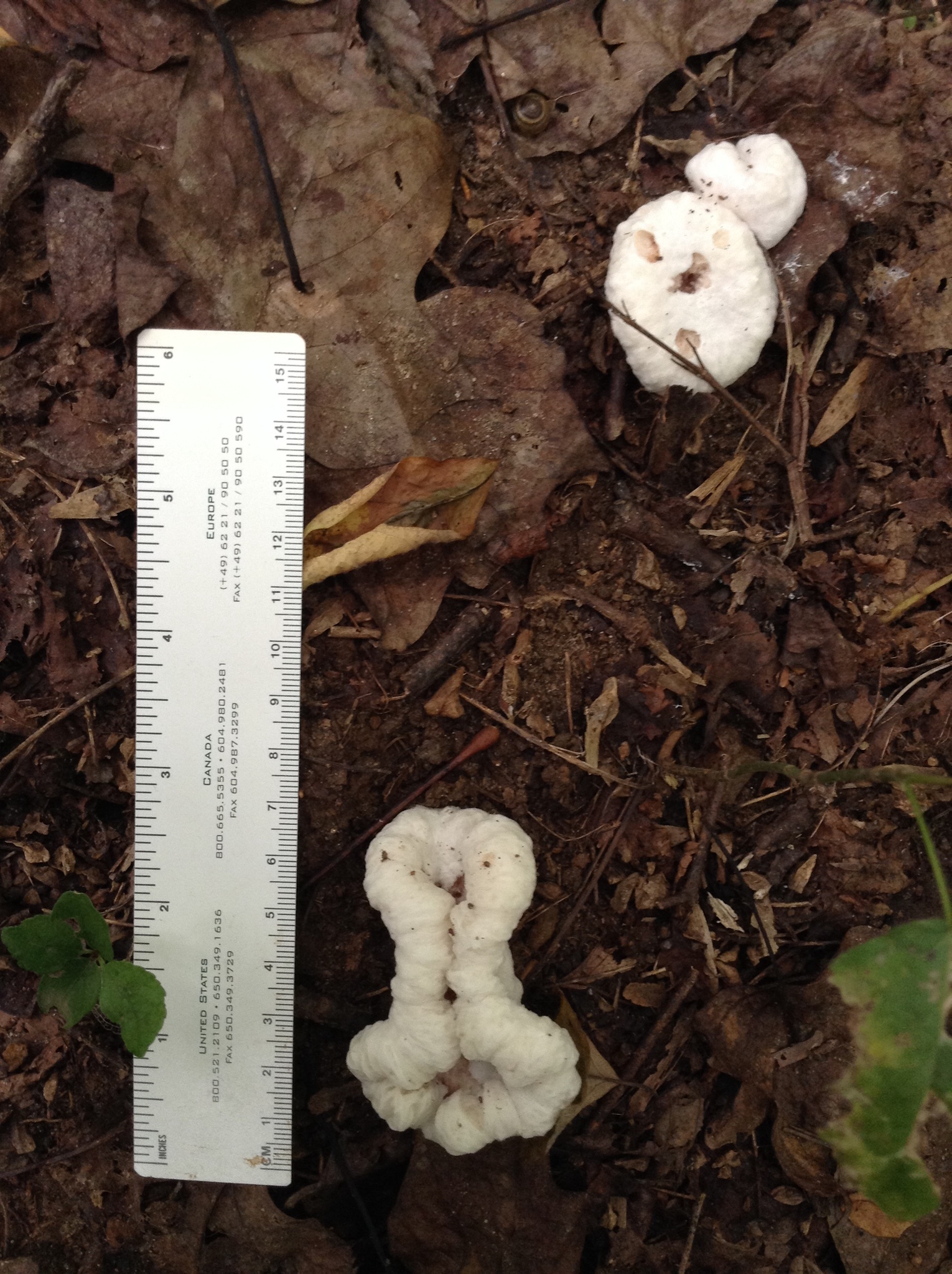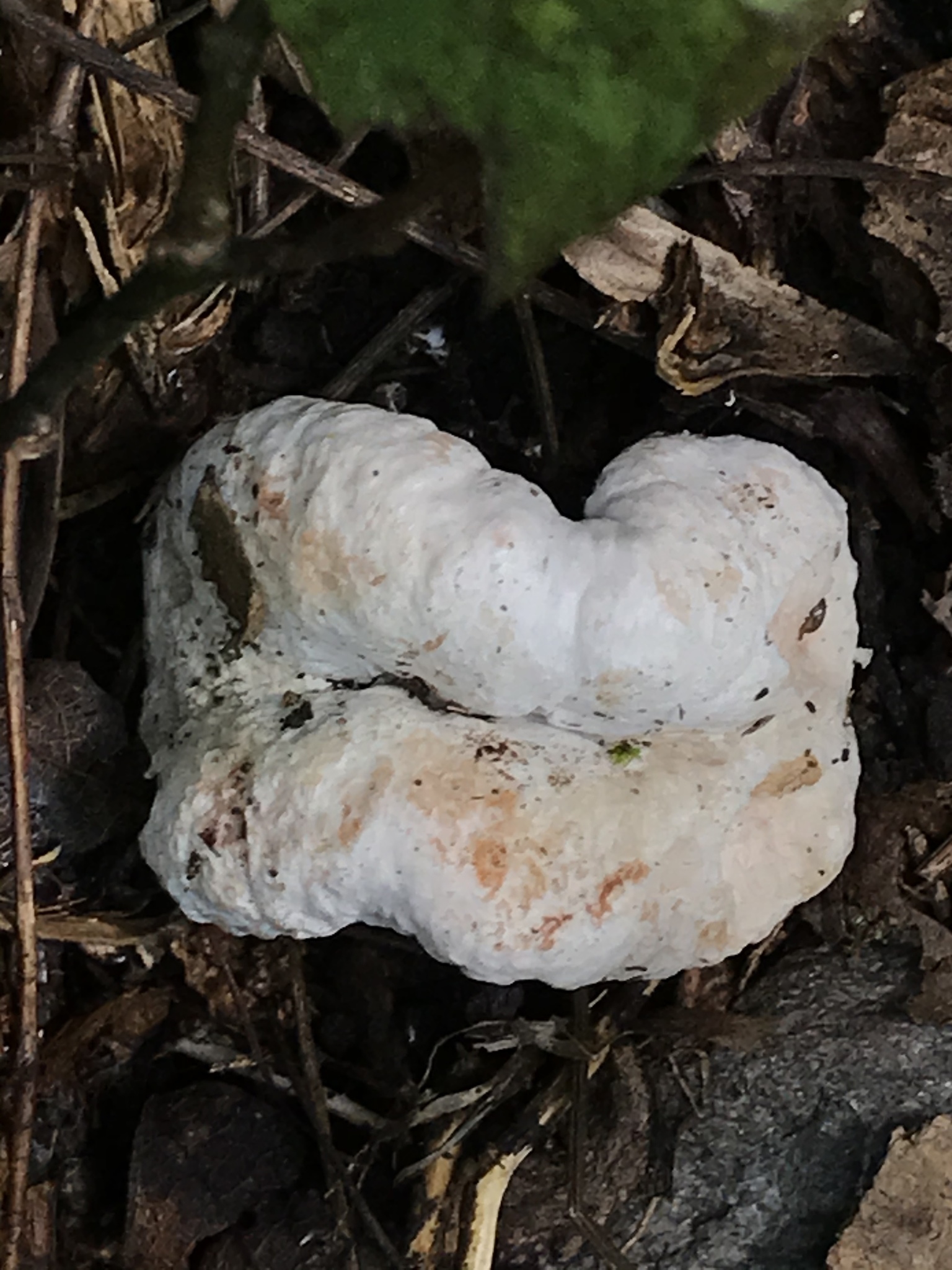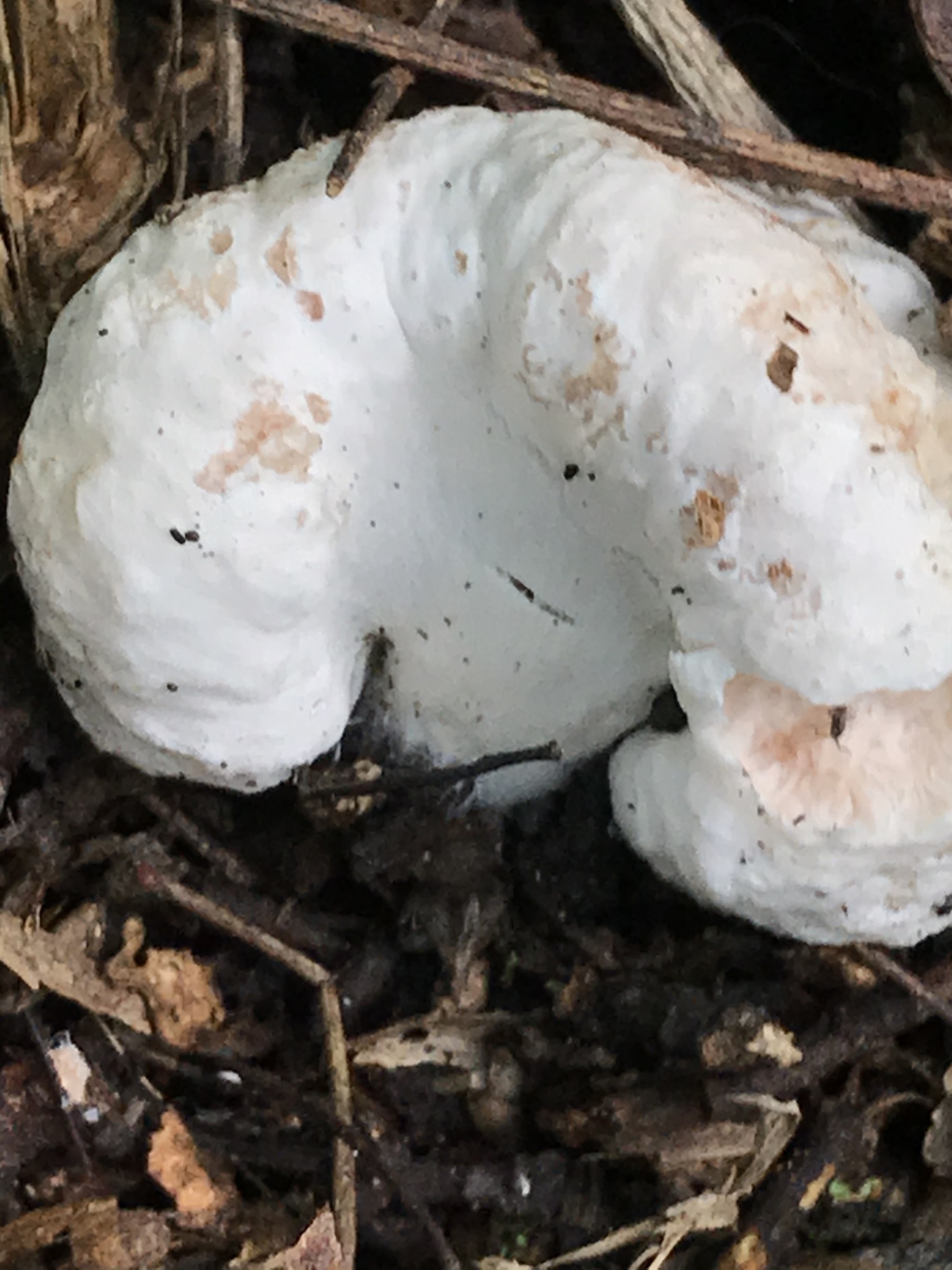Map Snapshot













64 Records
Status
Found scattered or in clusters on ground near rotting wood in mixed woods (J. Solem, pers. comm.). "Aborted fruiting bodies actually result from the growth of Armillaria (honey mushroom) attacking the fruiting bodies of the Entoloma. However, some recent studies now suggest that it is the Entoloma which attacks the fruiting bodies of the honey mushroom. Nevertheless, In all my years of finding this mushroom, I have never observed the honey mushroom fruiting among the aborted bodies. Sam Ristich, my mycological guru, was able to grow-out both myceliums from a single aborted body on agar plates." (L. Biechele, pers. comm.)
Description
Cap: Pale gray/gray-brown, convex with low umbo, inrolled edge. Gills: grayish (pinkish in age), close, subdecurrent. Stalk: Whitish/gray, base usually enlarged and coated with white mycelium. Aborted fruiting bodies: White with pink streaks, usually in clusters; flesh spongy. (J. Solem, pers. comm.)
Seasonality Snapshot
Source: Wikipedia
| Entoloma abortivum | |
|---|---|

| |
| Entoloma abortivum parasitizing the fruit bodies of Armillaria gallica | |
| Scientific classification | |
| Domain: | Eukaryota |
| Kingdom: | Fungi |
| Division: | Basidiomycota |
| Class: | Agaricomycetes |
| Order: | Agaricales |
| Family: | Entolomataceae |
| Genus: | Entoloma |
| Species: | E. abortivum
|
| Binomial name | |
| Entoloma abortivum | |
| Synonyms[1] | |
|
Agaricus abortivus Berk. & M.A.Curtis (1859) | |
| Entoloma abortivum | |
|---|---|
| Ecology is mycorrhizal or parasitic | |
| Edibility is edible but not recommended | |
Entoloma abortivum, commonly known as the aborted entoloma[2] or shrimp of the woods, is an edible mushroom in the Entolomataceae family of fungi. In Mexico they are called “Totlcoxcatl”, meaning “turkey wattle”, due to its irregular shape.[3] Caution should be used in identifying the species before eating[4] (similar species such as Entoloma sinuatum being poisonous).[5] First named Clitopilus abortivus by Miles Joseph Berkeley and Moses Ashley Curtis, it was given its current name by the Dutch mycologist Marinus Anton Donk in 1949.[6]
It was believed that the honey mushroom, Armillaria mellea, was parasitizing the entoloma. But research[7] has indicated that the inverse may be true—the entoloma may be parasitizing the honey mushroom. There is still some disagreement by mushroom collectors about this since it is common to see both the aborted and unaborted forms of the entoloma on wood and in leaf litter, whereas Armillaria generally only fruits on wood. Both versions of the entoloma have also been observed when there are no Armillaria fruiting.[citation needed]
See also
[edit]References
[edit]- ^ "Synonyms: Entoloma abortivum (Berk. & M.A. Curtis) Donk, Bull. bot. Gdns Buitenz. 18: 157 (1949)". Index Fungorum. CAB International. Retrieved 2012-11-04.
- ^ Spahr DL. (2009). Edible and Medicinal Mushrooms of New England and Eastern Canada. Richmond, California: North Atlantic Books. pp. 155–60. ISBN 9781556437953.
- ^ Dorr, Alex (2023). The Little Book of Mushrooms. Adams Media. ISBN 978-1-5072-1959-1.
- ^ Phillips, Roger (2010). Mushrooms and Other Fungi of North America. Buffalo, NY: Firefly Books. p. 157. ISBN 978-1-55407-651-2.
- ^ Miller Jr., Orson K.; Miller, Hope H. (2006). North American Mushrooms: A Field Guide to Edible and Inedible Fungi. Guilford, CN: FalconGuide. p. 215. ISBN 978-0-7627-3109-1.
- ^ Donk MA. (1949). Bulletin du Jardin Botanique de Buitenzorg. 18: 157.
{{cite journal}}: Missing or empty|title=(help) - ^ "Mycologia 93 (5): 841, 2001".
External links
[edit]
